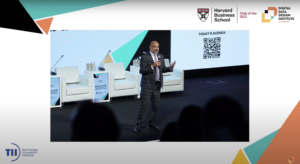Hiring for curiosity?

Is the hunt for 'curiosity' value adding in driving team / organizational performance?
In my organization, over the years, I have leant that successful recruitment is a key indicator of future success. Failure to recruit the ‘right’ candidate can not only be a drain on managerial capacity (fixing the problem which you implemented) but can be a huge impact the performance of the exiting team. Possibly destroying a positive team culture.
During the ‘Rebel Talent’ session, there was a quick mention on ‘hiring / screening candidates for curiosity over traditional measures’. I found this point really thought-provoking but would be interested in how one would practically apply this? I would be keen to find out if the group has any experience on this point and how they have added ‘hiring for curiosity’ into their recruitment process?




I invested in a organizational psychologist to design our recruitment process – which takes a candidate about 3 hours and consists of a values and behavioural survey, a telephone interview, a role play, a written exercise, a self reflection task and an interview – all for a job paying around $40k USD. Curiosity, while not called that in our process, is one of the key attributes we look for (in addition to collaboration, accountability and ability to work independently). This investment is, in my opinion, the reason for our success. I would be happy to share the process we went through to identify the key attributes and the process itself if you feel it would be helpful, just email me ricki.smith@acna.org.au
We tease out “curiosity” in our hiring process in different ways. It varies based on the type of position. For example, in hiring analytic positions, there is a technical test given. Many of the questions on the test are quantitative, so responses are very standard. There are some questions, however, that are very open. Additional resources are available to assist with completion. Candidates receive additional credit for how they respond to these and dive deeper in the questions. There is also a debrief after the test to allow the candidate to ask questions. “Curiosity” also becomes evident in their interest in looking/ or not looking to better understand components of the test.